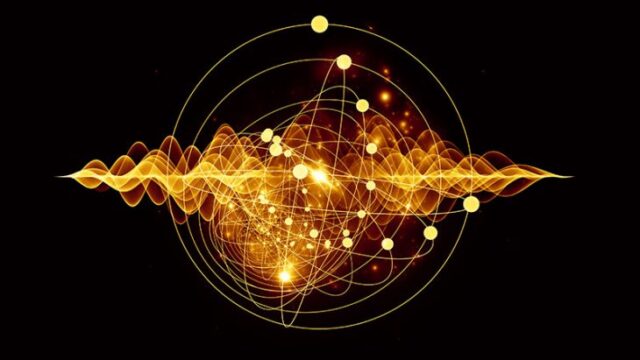At the edge of the future – a new navigations system based on quantum mechanics
The American company AN Aurum Dynamics Corporation is developing a revolutionary new navigation system that takes mankind to the edge of human knowledge and a radically new future. The term “radically new” is used because of the technology is based entirely on quantum mechanical systems that are as hard to understand as they are mysterious. Some would even say that the underlying physics is “spooky” and defy human common sense and logical thinking.
A quantum mechanical navigation system based on entanglement and superposition has the potential to surpass the current GPS navigation system due to several key advantages. Here are a few reasons why it could be a superior alternative:
- Improved Accuracy: Quantum systems can offer significantly higher precision and accuracy compared to classical systems like GPS. The principles of entanglement and superposition allow for more precise measurements, reducing the margin of error in determining location and navigation.
- Enhanced Sensitivity: Quantum navigation systems can be more sensitive to environmental factors that affect navigation accuracy, such as electromagnetic interference or signal blockages. By utilizing quantum entanglement, these systems can potentially overcome such limitations and provide reliable navigation even in challenging conditions.
- Increased Security: Quantum systems can provide enhanced security features compared to classical systems. Quantum entanglement enables secure communication and encryption protocols, making it extremely difficult for unauthorized entities to intercept or tamper with the navigation signals. This could prevent spoofing attacks and ensure the integrity of the navigation system.
- Multi-Point Navigation: Quantum navigation systems can potentially navigate in multi-dimensional spaces simultaneously. Utilizing superposition, these systems could calculate routes and positions across multiple points simultaneously, optimizing navigation efficiency in complex environments.
- Overcoming Line-of-Sight Limitations: Classical GPS navigation heavily relies on line-of-sight communication with satellites, which can be hindered in urban environments, dense forests, or indoors. Quantum navigation systems could utilize quantum entanglement to establish non-line-of-sight connections, enabling accurate navigation in previously challenging areas.
- Speed and Latency: Quantum systems have the potential to perform calculations faster than classical systems, reducing the latency in determining positions and routes. This could result in real-time navigation updates with minimal delay, enhancing the user experience.
While the development and implementation of a quantum mechanical navigation system based on entanglement and superposition pose significant technical challenges, these potential advantages highlight why it could be a compelling replacement for the current GPS navigation system in the future.
In addition to the advantages mentioned earlier, a quantum mechanical navigation system has the potential to make GPS satellites obsolete. Unlike GPS, which relies on a network of satellites orbiting the Earth, a quantum system can operate independently, eliminating the need for a constellation of satellites.
Moreover, a quantum mechanical navigation system would have the capability to work under water, inside mountains, and inside tunnels. Traditional GPS signals struggle to penetrate dense materials or underwater environments, leading to limited or no navigation functionality in such scenarios. Quantum systems, however, could overcome these limitations by utilizing quantum entanglement and superposition to establish connections and compute accurate positions even in challenging environments.
The ability to operate underwater would be particularly valuable for maritime navigation, underwater exploration, and military applications. Quantum navigation systems could provide precise positioning and navigation capabilities for submarines, underwater vehicles, and offshore operations.
Similarly, inside mountains and tunnels where GPS signals are often obstructed, a quantum mechanical navigation system could function effectively by leveraging quantum entanglement and superposition. This would be beneficial for applications like mining, cave exploration, and underground transportation, providing reliable and accurate navigation even in subterranean environments.
By offering enhanced accuracy, improved sensitivity, heightened security, multi-point navigation, and the ability to operate in challenging environments, a quantum mechanical navigation system could revolutionize the way we navigate, rendering traditional GPS satellites obsolete and providing seamless navigation capabilities in previously inaccessible locations.





















